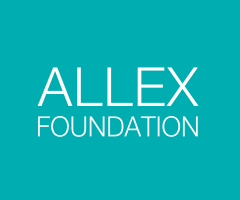Kaya Doi
“There are just too many nice memories from ALLEX for me to pinpoint one. Overall, it was a refreshing experience. It was really amazing.”
- Kaya Doi, Interpreter/Translator, Panasonic Energy of North America
Host University: Wellesley College
Program: One-year non-degree Teaching Fellowship Program
Language: Japanese
Motivation for Joining ALLEX
Before ALLEX, I had just graduated from International Christian University in Japan with a major in Media Communications and Culture. I focused on interpretation/translation.
I was interested in going to graduate school. One of my professors from International Christian University recommended the ALLEX program to me. She said that if I was thinking about going to graduate school, especially in the U.S., then it would be good to get some work experience, since many people in the U.S. tend to work for a few years before going back to school. Aside from my interest in interpretation/translation, I was also interested in pursuing education. I thought it would be a great experience trying to assist in language education and see if the teaching profession was a fit for me. The timing also felt right because since I had just graduated from college, I felt like I could still understand what it feels like to be a student.
Summer Training Program
I really loved the summer training program. The fun part for me was meeting people from all kinds of backgrounds. I enjoyed meeting not only the other Japanese teachers but also the Chinese and Korean teachers. It was great getting to live with them, take courses together, and spend time together outside of class. We are still in touch. I also enjoyed being a student for the other participants. I got to learn some of their language and see how they taught.
The program was definitely helpful. Getting to watch the professors teach, as well as watch the other participants, gave me a lot of ideas about how to improve. It was beneficial to see other people’s styles and get feedback on my teaching from both professors and other participants. Plus, learning the performance-based teaching style was new to me. Honestly, I was still scared at the end of the summer training program to start teaching. However, I think that was mostly from my own lack of confidence. The training did a good job putting us through different situations, where we had to overcome our stage fright. The program taught me how to maintain my confidence through the different stages of teaching from preparation to execution to reflection. The training was critical in preparing me to teach at Wellesley College and definitely increased my motivation to teach.
Benefits of Teaching in the ALLEX Program
I would definitely recommend the ALLEX program. The performance-based teaching style makes you use words that the other person will be able to understand. You have to think a lot about what the other person knows and how you can convey something in a way that will make sense to them at their current level of understanding. I think that mindset is important in other areas of life too. It gave me tools to be more sensitive about communicating in an easy to understand way. So even if someone from ALLEX moves on to other professions, they can still come back to that way of understanding and communicating with others.
Personally, the program is very important and dear to me. I was born in Japan. When I was 2 years old, I moved overseas. I have actually lived more overseas than in Japan. At times, I have struggled with Japanese, even though it is my first language. Part of me always doubted my Japanese ability, which conflicted with my identity. Because of my own struggles with Japanese, I felt like I could empathize with the students, as they tried to learn Japanese. Through ALLEX, I got the chance to teach Japanese. It was a positive experience for me to become comfortable with not being perfect in any language, including Japanese. I also enjoyed sharing this new way of self-expression with my students.
Thanks to ALLEX, I got the chance to reflect on the Japanese culture and language. It made me think about how Japan is represented in textbooks and in worldviews, and what kinds of stereotypes exist about Japan. People sometimes use labels, saying “This is very ‘Japanese.’ ” My experience in ALLEX gave me a chance to deconstruct those labels and think about what is making people say that. Whoever is involved in ALLEX can become a liaison and can help people understand that there may be biases and stereotypes involved. At the same time, you can take note of your own biases and stereotypes too.
Career Journey After ALLEX
During ALLEX, I realized I wanted to go to graduate school for interpretation/translation. I went on to get my Masters from the Middlebury Institute of International Studies at Monterey. Since then, I have been working for Panasonic, as an interpreter/translator.
Looking back on my ALLEX experience, there are so many positive memories. I remember having a lot of fun with students at the end of the year when they performed skits. The students were so creative. Everyone was laughing and having a good time. It was so nice to see their learning come together in that format.
There are just too many nice memories for me to pinpoint one experience. Overall, it was a very refreshing experience. It was really amazing.

